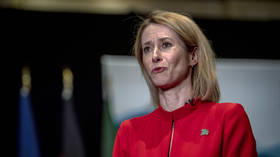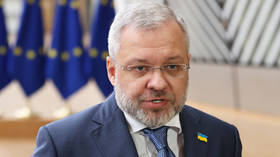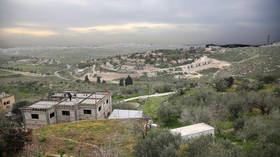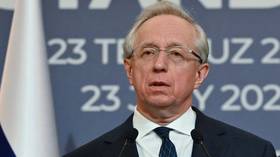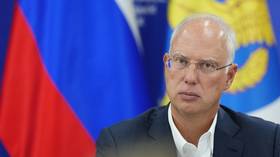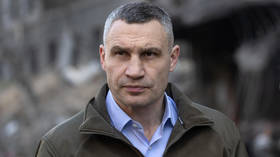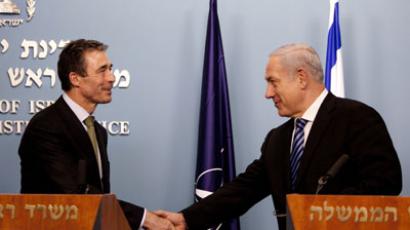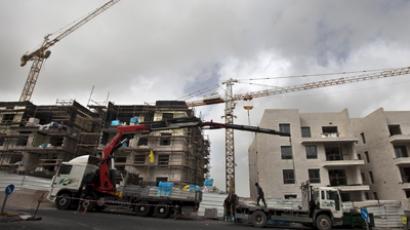Peers in prayer: Israel may review gender inequality at holy site
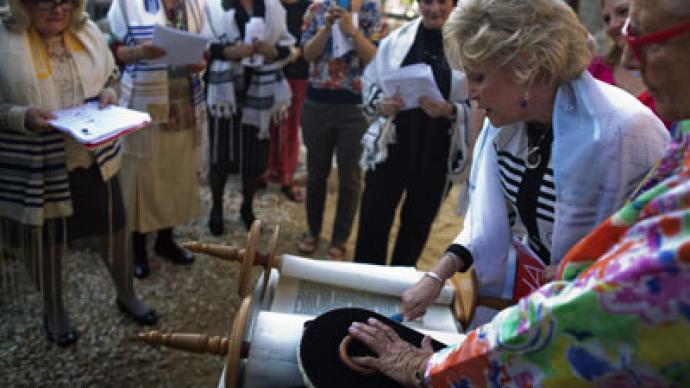
Pressured by rights activists and foreign Jewish diaspora, Israeli PM Benjamin Netanyahu has asked for a review of an Orthodox-backed law which restricts the ways how women can pray at the holy site of the Western Wall.
The decision comes amid outrage from women rights activists in Israel and across the Jewish Diaspora in other countries over a flurry of recent arrests of female activists near the wall. Currently only men are allowed to wear traditional prayer shawl or read from Torah at the Western Wall, or Wailing Wall, plaza. Prime Minister Netanyahu has asked Natan Sharansky, the chairman of the quasi-governmental Jewish Agency, to study the issue and suggest ways rectify the conflict. The agency is responsible for immigration and relations with Jews abroad.US-based organizations are among the vocal critics of the law and supporters of the Women of the Wall, the Israeli organization fighting for gender equality at the site. The move may help the Israeli government somewhat curb the global trend which is seeing Jewish communities abroad become more detached from the Jewish state and its goals.“The prime minister thinks the Western Wall has to be a site that expresses the unity of the Jewish people, both inside Israel and outside the state of Israel,” Ron Dermer, Netanyahu’s senior adviser, explained in an interview with The New York Times. “He wants to preserve the unity of world Jewry. This is an important component of Israel’s strength.”Sharansky said he may come up with recommendations within a few months. Both officials hinted that they are likely to include some easing of the restrictions as well as improvements for Robinson’s Arch, a small discreet area at the southern end of the wall, which is subject to different regulations than those applying to the much larger plaza.A 2003 ruling of the Israeli Supreme Court, which upheld the religiously-motivated governmental ban enforced at the plaza, also instructed the government to open the Arch for services by activists of the Women of the Wall and some non-Orthodox Judaism groups. The compromise however did not resolve the conflict, partially because the site’s archeological status and small size create access problems, and partially because the activists see the apparent segregation insulting.“It’s a good thing that after 24 years the highest echelons in Israel are actually paying attention to this rift that is breaking Diaspora Jews from Israel,” Anat Hoffman, the chairwoman of Women of the Wall, told the newspaper.She added that the news would not stop her from filing a Supreme Court petition challenging the makeup of the heritage foundation’s board. “The table that should run the Western Wall should have everyone who has an interest in the wall sitting around it,” she said.Women activists have been seeking equal access to the Western Wall since at least 1988, often facing attacks by Orthodox believers and later arrests for violating the law. Israeli Supreme Court granted them the rights they wanted in 2002, triggering an outcry from Orthodox parties. Amid the backlash some parties at the Knesset unsuccessfully tried to make non-traditional prayer at the wall a criminal offense carrying a sentence of up to seven years. Eventually the court reconsidered its decision.The Western Wall is what remains of the ancient wall surrounding the courtyard of the Second Temple in Old Jerusalem. It has been a major pilgrimage destination for Judaist believers for centuries. Israel took control of the area during the Six-Day War in 1967, after which the neighborhood was reconstructed to allow access to hundreds of thousands of worshipers daily.Women of the Wall want to be able to perform services at the plaza once a month in full regalia.Netanyahu’s initiative comes as Israel finds itself in increasing isolation over its latest drive to construct new settler homes in the occupied West Bank. The moves, which came as retaliation for the upgrade of the Palestinian Authority status at the UN, met overwhelming international condemnation.




